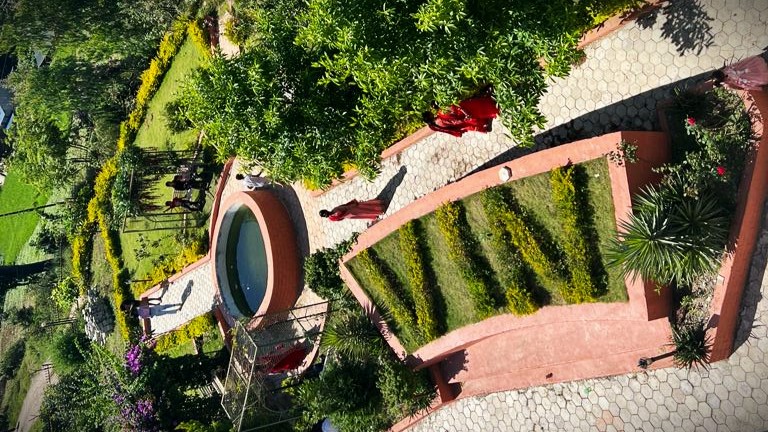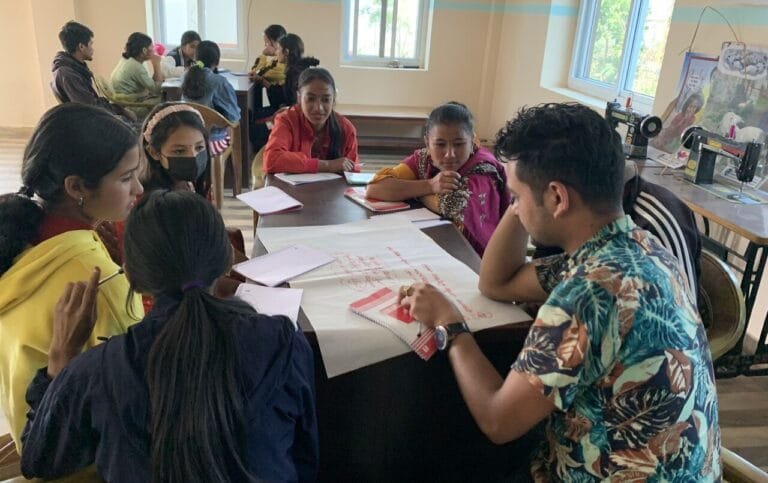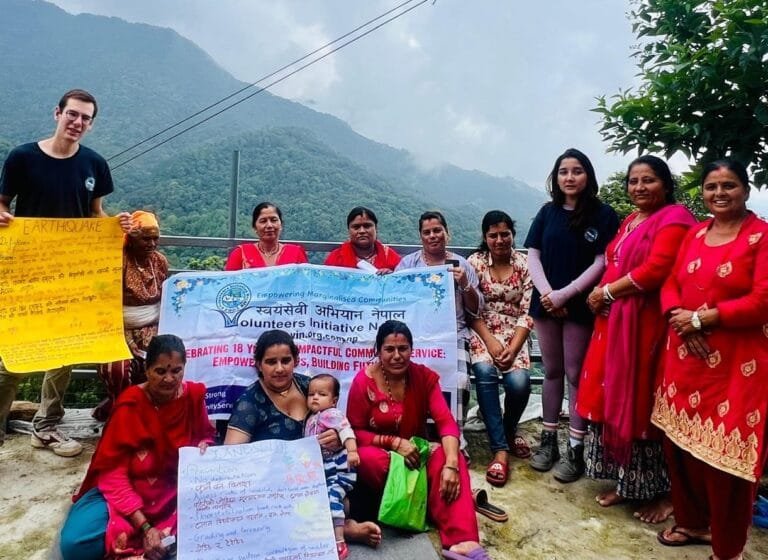At the NaraTika Community Learning Center (NTCLC), we recognize the powerful impact that nature has on our well-being, and we are committed to promoting environmental sustainability. One of the key ways we foster a greener, healthier world is through our gardening volunteer programs. Gardening is not just about planting seeds; it’s about nurturing growth, both in nature and in the community. NTCLC’s gardening volunteers lead the charge in promoting eco-friendly practices and transforming local spaces into vibrant, green sanctuaries.
This article explores the vital role of gardening volunteers at NTCLC, the benefits of sustainable gardening, and how their work is fostering positive environmental change in the community.

The Role of Gardening Volunteers at NTCLC
NTCLC’s gardening volunteers play an essential role in cultivating eco-friendly environments that inspire both individuals and communities. Through their dedication, they are helping to create thriving green spaces that encourage sustainability, community engagement, and education.
These volunteers are involved in a variety of gardening projects, ranging from creating community gardens to teaching sustainable farming practices. They work closely with local residents, sharing valuable knowledge about the importance of organic farming, composting, and water conservation. Gardening at NTCLC is a holistic approach that integrates environmental education with hands-on experience, empowering individuals to make positive environmental changes in their own lives.
Whether planting trees, creating herb gardens, or cultivating flower beds, NTCLC’s gardening volunteers are not only enhancing the beauty of local spaces but also promoting a deeper connection to nature.

Promoting Sustainability Through Gardening
Sustainability is at the heart of NTCLC’s gardening initiatives. In today’s world, where environmental concerns such as climate change, deforestation, and resource depletion are more pressing than ever, sustainable practices are essential. Gardening volunteers at NTCLC play a crucial role in demonstrating how individuals can make a tangible impact on the environment by adopting eco-friendly gardening practices.
Some key aspects of sustainability that NTCLC’s gardening volunteers focus on include:
- Organic Farming: Volunteers teach local community members how to grow their own food without relying on harmful chemicals or pesticides. Organic gardening promotes healthier soil, reduces pollution, and fosters a connection to natural food sources.
- Composting: By creating composting systems, volunteers help community members recycle organic waste and turn it into nutrient-rich soil. This practice reduces landfill waste and enhances soil health, contributing to a healthier environment.
- Water Conservation: Gardening volunteers educate the community about efficient irrigation techniques, rainwater harvesting, and drought-resistant plant species. These practices help conserve water, a vital resource for both agriculture and daily life.
- Biodiversity: Volunteers encourage the planting of diverse species to create balanced ecosystems. Biodiversity in gardens helps improve soil health, attracts beneficial insects, and provides habitat for wildlife.
These sustainable gardening practices not only benefit the environment but also contribute to building a more resilient community that is better prepared to face the challenges of climate change.
Educating the Community About Eco-Friendly Practices
NTCLC’s gardening volunteers do more than just plant and maintain gardens. They are passionate educators who inspire others to adopt green practices in their daily lives. Volunteers organize workshops and community events where they share their knowledge about the importance of sustainability, organic farming, and environmental conservation.
These educational programs provide local residents with practical skills and resources to implement eco-friendly practices in their own homes and gardens. By teaching individuals about the benefits of reducing waste, conserving water, and planting native species, gardening volunteers are fostering a culture of environmental stewardship.
In addition to workshops, NTCLC’s gardening volunteers engage with schools, encouraging students to participate in gardening activities that promote environmental awareness. Through hands-on activities, children learn about the importance of nature, biodiversity, and sustainability, which instils a sense of responsibility for the environment from a young age.
Transforming Community Spaces into Green Sanctuaries
NTCLC’s gardening volunteers are also dedicated to transforming public spaces into green sanctuaries. By beautifying community areas with flowers, trees, and plants, they not only enhance the aesthetic appeal but also improve the quality of life for residents.
These green spaces provide a peaceful retreat from the urban hustle and bustle, offering opportunities for relaxation, socializing, and outdoor activities. Additionally, well-maintained gardens help improve air quality, reduce the urban heat island effect, and promote mental well-being by providing individuals with access to nature.
Through collaborative efforts, gardening volunteers help turn neglected or underutilized spaces into thriving community gardens. These spaces not only serve as hubs for environmental education but also act as gathering places where community members can connect, learn, and share experiences.
The Social and Health Benefits of Gardening
Gardening offers a range of social and health benefits that go beyond environmental impacts. NTCLC’s gardening programs have a positive effect on the well-being of individuals and communities. Some key benefits include:
- Physical Health: Gardening promotes physical activity, which is essential for maintaining good health. Volunteers and community members engage in activities such as planting, weeding, and watering, which help improve fitness and overall health.
- Mental Well-being: Spending time in nature has been shown to reduce stress, anxiety, and depression. NTCLC’s gardening spaces provide a peaceful environment where individuals can relax, reflect, and connect with the natural world, promoting better mental health.
- Social Connections: Gardening encourages teamwork and collaboration. Volunteers work alongside community members, fostering social connections and building a sense of camaraderie. These social bonds help strengthen the community and create a sense of belonging.
- Food Security: By growing their own food, community members gain access to fresh, nutritious produce. This contributes to food security and reduces reliance on external sources, which is especially important in areas where food access may be limited.
How You Can Get Involved
NTCLC’s gardening programs would not be possible without the dedication of our volunteers. If you are passionate about sustainability, nature, and community, there are numerous ways you can get involved with NTCLC’s gardening initiatives.
We welcome individuals of all backgrounds to join us in promoting eco-friendly practices and nurturing the environment. Whether you are an experienced gardener or just starting, there are opportunities for everyone to contribute to our mission of creating green sanctuaries and promoting sustainability.
To learn more about how you can volunteer or donate to NTCLC’s gardening programs, contact us to learn more.
Conclusion
The impact of gardening volunteers at NTCLC is immeasurable. Their work goes beyond planting and maintaining gardens; it is about creating sustainable, eco-friendly practices that contribute to the health and well-being of both individuals and the planet. By transforming community spaces, educating others about green practices, and fostering a sense of responsibility for the environment, NTCLC’s gardening volunteers are helping build a better, more sustainable future.
Join us in nurturing nature and making a positive difference in the world, one garden at a time.





